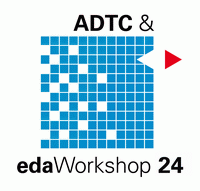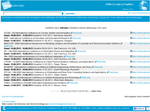REES Workshop 2015
 |
1st International ESWEEK Workshop
|
|
General Co-Chairs
Daniel Müller-Gritschneder, Technical University of Munich, Germany
Wolfgang Müller, Heinz Nixdorf Institute/University of Paderborn, Germany
Subhasish Mitra, Stanford University CA, USA
With the sheer complexity of hardware and software systems, resiliency became a major challenge in embedded systems design, manufacturing, and operation. For industrial applications several standards such as ISO26262, IEC61508 or DO-254 prescribe a well-defined level of reliability, robustness, and fault-tolerance.
This joint academic/industry workshop addresses all resiliency aspects in hardware and software systems design and operation from different embedded system areas such as automotive, avionics, and industry automation. This includes, but is not limited to, design bugs and cross-layer and cross-domain design techniques from software (applications, operating systems, middleware) to hardware (system, architecture, circuits, device level). Of special interest are design-for-resiliency technologies, resilient-specific design flows, like integrated functional/stochastic approaches, and development frameworks for robust designs, such as virtual prototyping approaches, which support early evaluations and estimations to obtain high reliability with less cost. REES 2015 will feature a range of highly interesting industrial invited talks.
REES 2015 program is available.
REES 2015 final proceedings are available.
REES 2015 will be held in conjunction with ESWEEK2015. Please register via ESWeek website. Early registration deadline is Sept., 8th.
| REES Workshop (Program) | October 8, 2015 |
| Camera-Ready Proceedings Paper (2-8 pages) (Upload) | October 19, 2015 November 1 2015 |
Please find the PDF version of the call for submissions here.
The workshop is supported by the DFG through the priority program Dependable Embedded Systems (SPP1500) and the BMBF through the project EffektiV.












